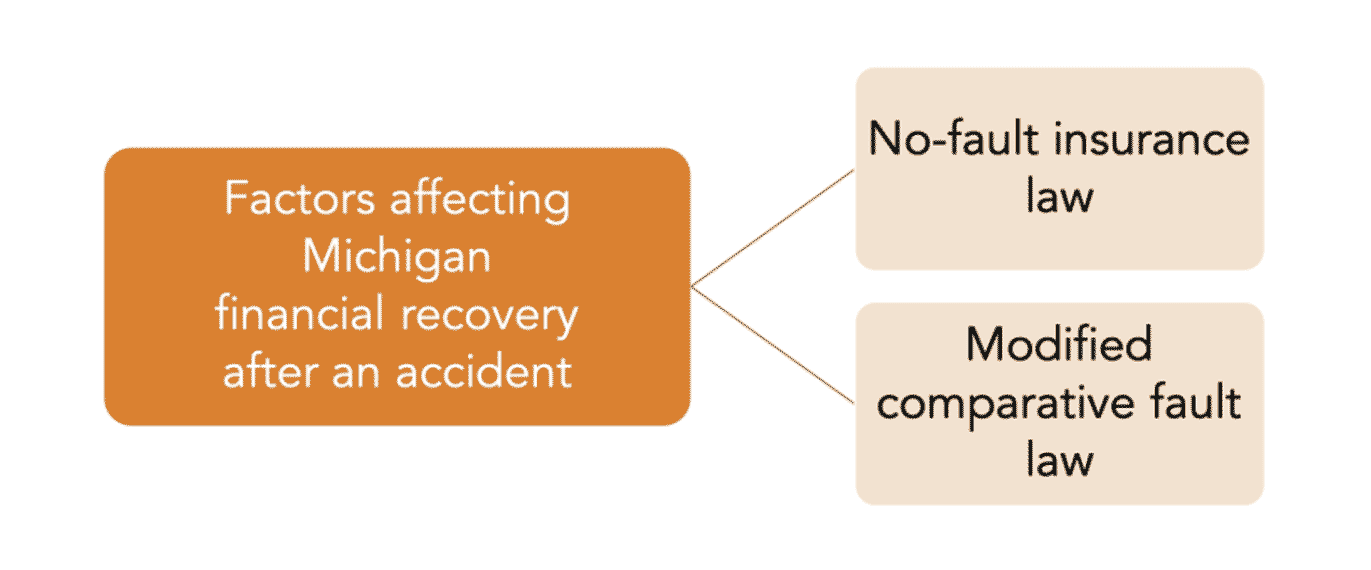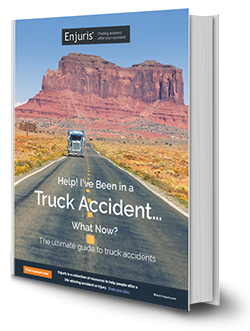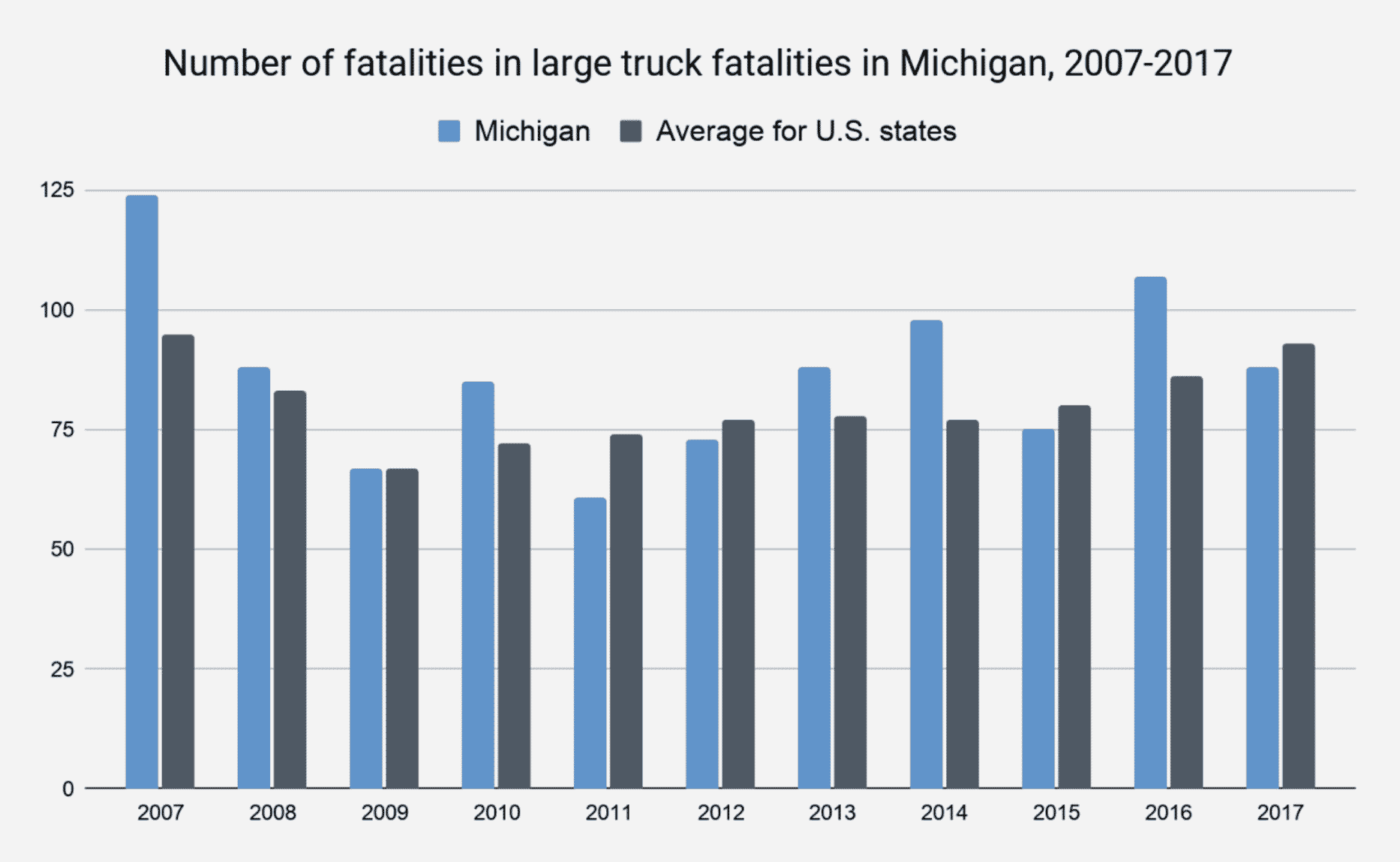These tips for avoiding a truck accident — and what to do if you're in one — are important for any driver to know
No one plans to be in an accident.
Every time you leave your home and head out in your car or motorcycle, as a pedestrian, or on your bicycle, you likely don't anticipate the possibility of being involved in a crash.
And yet, crashes happen every day in Michigan. In fact, truck accident rates, in particular, have historically been higher in the Great Lakes State than the national average.
Don't believe us?
Just take a look at the numbers for Michigan truck accident fatalities from 2007 to 2017, as compared to the average number of truck accident fatalities in each state during the same time period:
This isn't to scare anyone… it's just a fact. But the good news is that there are things you can do to avoid a truck accident in some situations.
Let's first talk about Michigan traffic laws and liability rules and how they relate to a truck accident.
Truck accident lawsuit basics: negligence and damages
If you were in a truck accident in Michigan and you were severely injured, you might need to file a lawsuit to claim damages for your expenses that exceed the limits of the insurance policies.
Here's how a lawsuit works:
The plaintiff (injured person) must prove that the defendant (the party who caused the injury) was negligent in order to be awarded damages (money provided in order to compensate you for your injuries).
Damages from a Michigan truck accident could include:
- Medical expenses, including doctor and hospital visits, surgeries, outpatient procedures, prescription medications, etc.
- Costs for adaptive devices
- Ongoing treatment like physical or occupational therapy
- Lost wages (past and future)
- Costs for property damage (like repair or replacement of your vehicle)
- Compensation for assistance with daily activities (like child care, personal aide, etc.)
- Pain and suffering, for PTSD and other emotional distress caused by the crash
- Funeral and burial expenses, if the crash resulted in the death of your loved one
In order to recover damages, you must prove negligence through establishing these elements:
- Duty. Any person who shares the road has a duty to other road users (which includes drivers, pedestrians, bicyclists, etc.) to avoid harm or injury.
- Breach. The defendant breached their duty to avoid harming the plaintiff.
- Causation. The defendant's breach caused the plaintiff's injury.
- Damages. The plaintiff's injuries cost them money.
Michigan vehicle accident and liability laws
There are 2 significant factors that can affect how much money you can recover after an accident:
1. Michigan no-fault insurance
Michigan is among 12 states (and Puerto Rico) with a no-fault insurance system. A no-fault system requires that each person involved in an accident file a claim to their own insurance company, regardless of who was at fault for the crash. This keeps smaller cases out of the courts and allows an injured person to recover damages more quickly because there's no need to prove fault in order to receive a settlement.

If you're in an accident, your insurance company's Personal Injury Protection (PIP) coverage will pay for the cost of your injuries up to your policy limits. This can include costs for medical treatment, lost wages, funeral expenses, and other expenses directly related to losses from the accident.
There is also a tort liability threshold. That means there are certain conditions that would allow the plaintiff to file a lawsuit, rather than relying solely on insurance. Those conditions include significant disfigurement, death, or medical bills that exceed the amount of insurance coverage.
2. Michigan modified comparative fault law
Each state follows 1 of 4 methods of determining compensation based on the plaintiff's percentage of fault. In some states, you can't recover damages if you had any fault for an accident. Some states reduce your damage award by your percentage of fault, and other states require that you are 50% or less at fault.
In Michigan, you must be less than 51% at fault in order to recover any damages.
You're driving your car on a 2-lane road and you come to a T-intersection with a traffic light.
Approaching from your right side is an 18-wheeler truck that's signaling to make a left turn. In other words, the truck will need to make a left around you as you sit at the intersection.
There are no other cars nearby. The truck to your right has the green light and your light is red. You can see that the truck is struggling to clear the turn because of its size, and it appears that it's going to have trouble making the turn without entering your lane.
You look around. You can backup to give the truck more room to make the turn. However, at that moment, your phone buzzes. You decide that the truck driver probably will be fine and will figure out how to maneuver his vehicle. Instead of trying to give him more space, you stay where you are and tap out a quick text.
As a result, the truck grazes the front of your car, which causes significant damage to your car and you end up with a pretty good jolt from the impact. You suffer some neck and back pain as a result.
It turns out that you have the minimum amount of PIP insurance, but your neck and back injury is more serious than it seemed at first and you're going to need surgery.
Who pays?
You can sue the truck driver and trucking company for damages, but the court also looks at your liability.
It turns out that there was a pedestrian in a nearby parking lot who witnessed the accident. She saw that you could've moved and didn't. The trucking company lawyers also subpoena your phone records and are able to tell that you were texting at the time of the crash.
As a result, the court finds that you were 60% liable. Even though you didn't cause the accident, you could've taken actions that would have prevented the accident from happening. In that instance, you wouldn't receive any damages to pay for your surgery and related expenses.
But let's look at it another way…
Let's say you did back up your car to give the truck some space to clear the turn. However, you didn't back up enough and the accident still happened. The court might find in that situation that you were 10% at fault, not 60%.
If that's the case, then your damages would be reduced by your 10% of fault, but you would still recover financially in a lawsuit. In other words, if your damages amount to $100,000, the court would reduce it by 10% and you could recover $90,000.
Common types of truck accidents
It's important to understand what causes many types of truck accidents because knowing what makes them happen can help you to avoid being involved in one and who you can hold liable.
Although a truck accident could happen in any number of ways, here are some of the most common types:
Tire blowout accidents
Both cars and trucks can have tire blowouts. When that happens, it can cause the vehicle to swerve into another lane, rollover, or (in the case of semi-trucks) jackknife. A tire blowout is usually caused by wear and tear, defective manufacturing, or lack of routine maintenance. If a truck tire blows out, the debris from the broken tire could hit other cars, or the truck could collide with other cars if it swerves out of its lane.
Jackknife truck accidents
A "jackknife" is when the cab and trailer portions of a big rig fold at the joint. If the back of the trailer moves faster than the cab, it creates a sharp angle that causes the truck to face 2 directions. If this happens, the driver no longer has control over the vehicle. A nearby car could collide with the swinging trailer or wedge underneath the rear of the truck.
Underride truck accidents
A passenger car can slide underneath a truck, either from the rear or the side. The height difference in the vehicles could mean that the top or front of the car could be crushed and its occupants seriously injured. This is an especially deadly type of truck accident.
Unsecured load accidents
There are many federal regulations for loading cargo, and the main consideration is that the haul must be immobile and secure. The truck's restraint system must be strong enough to keep cargo from sliding or shifting.
There are 2 ways an unsecured load accident could happen:
- If the truck is involved in an accident and the load isn't secured properly, it can create an additional hazard because the impact could cause the cargo to slide into oncoming traffic, or onto the road.
- The instability of the load can cause a rollover if the truck's center of gravity is thrown off or the movement causes the truck to move unpredictably.
Hazmat truck accidents
"Hazmat" stands for hazardous materials. This classification could include anything from gasoline, to pesticides, to lithium batteries, to dry ice. What classifies cargo as hazardous is if it's either highly flammable or could become harmful to breathe if it becomes airborne.
A hazmat truck accident can affect not just the drivers on the road, but also anyone in surrounding areas. If a toxic substance is released into the air or certain bodies of water, it can affect people in nearby communities.
Determining liability for your truck accident injuries
If your insurance doesn't cover the extent of your injuries, knowing who was liable will be crucial to your case. In a truck accident, there can be a number of potential defendants.
- Truck driver. While this might seem most obvious, even if the driver made an error, it's not always the driver's fault. Sometimes the trucking company (employer) bears the liability for the actions of its employees.
- Trucking company. There are several ways the company could be liable for an accident. The contracts between the trucking company and the shipper or manufacturer, or between the trucking company and the driver (many drivers are independent contractors or subcontractors), can determine who's liable for an accident. The company could also be liable if the accident was caused by a truck that wasn't properly inspected or loaded, or if the trucking company violated strict federal standards for how many hours a driver may work in a shift or how long they have to sleep in between.
- Parts manufacturer. Your car was probably manufactured in a plant that's owned and operated by a specific manufacturer. A truck, on the other hand, might be made from parts made by a number of different manufacturers. If the accident was caused by a faulty bearing, a defective cargo restraint, defective brake system, or any other way that's related to defective parts, it could be the manufacturer that's ultimately at fault.
- Shipper/distributor. Some shippers use their own trucks to transport goods. Others contract with a trucking company, but the shipper would still load cargo before the trip. Some truck accidents are caused because cargo is loaded improperly, there's too much weight, or for other cargo-related reasons—in which case, the shipper or distributor could be liable for damages.
How driver error can cause a truck accident
- Distracted driving. Distraction is a huge problem for everyone — including teens and adult drivers. And it's not just about texting and driving. Distraction can be anything from eating, to flipping radio channels, to simply getting lost in your thoughts and losing concentration on a long and boring strip of highway. Taking your eyes, hands, or mind off the task of driving, even for a split second, can result in disaster.
- Alcohol and drug use. Nearly a third of truck drivers admitted to using amphetamines on the job, according to a Reuters Health study. Another 20% admitted to using marijuana, and 3% used cocaine. Sometimes, truck drivers use amphetamines or cocaine in order to stimulate themselves to stay awake while driving. The hazard is that these drugs also compel drivers to take unnecessary risks (like speeding). Also, the drugs' effects wear off quickly, which makes it more likely for a driver to fall asleep at the wheel.
- Speeding. Drivers are under constant pressure to make tight deadlines. A driver might be at risk of losing their job if they can't deliver a load on time, and that might mean they're going to speed to get there. For an 18-wheeler traveling 55 miles per hour on dry pavement, it can take 390 feet (or 4 seconds) to come to a stop. That might not sound like much, but if you're in a small car in front of a big truck and you need to come to a sudden stop, then you could be at risk if the driver behind you can't stop the truck fast enough.
- Driver fatigue. There are laws and regulations about how many hours a truck driver is allowed behind the wheel per shift, and how many hours of sleep are required in between shifts. Unfortunately, many trucking companies don't follow the rules. Sometimes, the drivers want to make better time, so they choose to cut corners on the amount of sleep they get. This results in drivers who fall asleep at the wheel, or who lose concentration or coordination and are slow to react to a traffic situation.
- Failure to leave enough space between vehicles. The most effective form of prevention is to leave plenty of room to make sudden stops or other maneuvers, and to avoid traveling alongside a truck or in the driver's blind spot. The general rule of thumb is if you can't see their mirrors, they can't see you. Certainly, you need to pass a truck from time to time. But try to wait until you're sure there's enough room to pass quickly without having to linger in the lane directly adjacent to the truck.
Workers' compensation for a truck driver injured in a trucking accident
So far, we've been talking about how you'd respond to a truck accident as an occupant of another vehicle.
But what if you're the truck driver?
Almost every employer in the U.S. is required to provide workers' compensation insurance for an employee who's injured in the course of performing work-related tasks. That would certainly apply to a truck driver who's injured in an accident.
The exception might be if a driver is an independent contractor. However, working as an independent contractor doesn't necessarily mean that you're not entitled to workers' compensation benefits.
When to consult a Michigan truck accident lawyer
Michigan laws around liability and fault are a little more complicated than some other states'. If you're involved in a truck accident, either as a truck driver, a car driver, a pedestrian, or in any other way, it's important to get a lawyer who can help.
Due to the possibility of there being multiple defendants (or defendants who might not be the obvious ones), working with a lawyer will be especially critical to your success in receiving compensation.
Did you know that truck accident law varies by state?
Need a lawyer?
What does an injury lawyer do?
A personal injury lawyer helps individuals who have sustained injuries in accidents to recover financial compensation. These funds are often needed to pay for medical treatment, make up for lost wages and provide compensation for injuries suffered. Sometimes a case that seems simple at first may become more complicated. In these cases, consider hiring an experienced personal injury lawyer. Read more















